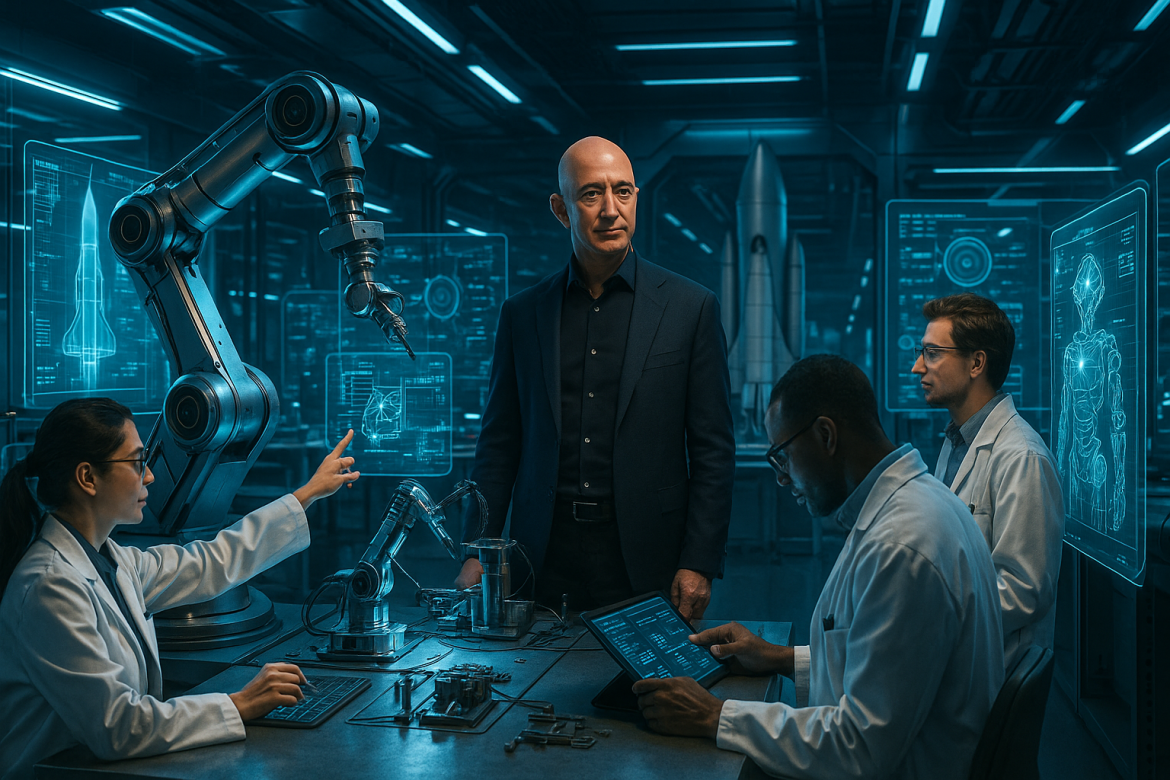Jeff Bezos, the founder of Amazon and one of the world’s wealthiest individuals, is taking on a rare operational role in a new artificial intelligence start-up that he will jointly lead as co-chief executive.
The company, called Project Prometheus, emerges with a formidable $6.2 billion in funding, reported the New York Times, citing people familiar with the venture.
The investment ranks the start-up among the most heavily financed early-stage companies globally.
This marks Bezos’s first formal executive position outside Amazon since he stepped down as chief executive in 2021.
Although he remains deeply engaged in his space company Blue Origin, his official title there is founder, making this new AI role notable for its hands-on leadership commitment.
A strategic entry into an intensifying AI race
Project Prometheus enters a fiercely competitive AI landscape dominated by major technology groups such as Google, Meta, Microsoft, and leading independent labs including OpenAI and Anthropic.
The start-up, which has kept a low profile, is believed to be developing technology aligned with Bezos’s longstanding interest in advancing capabilities related to space exploration.
According to the report, the company aims to build AI tools that support engineering and manufacturing across sectors, including computing, aerospace, and automotive.
It remains unclear when Project Prometheus was formed or where the company intends to base its operations.
Still, its ambitions align with a broader wave of AI companies turning attention toward physical-world breakthroughs rather than purely digital tasks.
The start-up has already hired nearly 100 employees, including researchers recruited from top AI institutions such as OpenAI, Google DeepMind, and Meta.
Bezos will co-lead the company alongside Vik Bajaj, a physicist and chemist whose career spans Google’s X lab, where he collaborated closely with Google co-founder Sergey Brin, as well as Verily, a life-sciences research unit under Alphabet.
More recently, Bajaj served as chief executive of Foresite Labs, an incubator for AI and data science ventures, before leaving to focus full-time on Project Prometheus.
AI for physical discovery gains momentum
Project Prometheus is part of a growing movement of companies seeking to apply AI to scientific discovery, robotics, drug design, and physical experimentation.
Firms such as Periodic Labs, founded by former researchers from Meta, OpenAI, and Google DeepMind, are also pursuing AI models designed to learn from the physical world.
Periodic Labs plans to operate its own lab in Northern California, where robots will autonomously conduct high-volume scientific experiments to generate data for AI training.
A similar approach is expected at Project Prometheus, which intends to build AI systems that learn through more complex mechanisms than those used by mainstream large language models.
Unlike chatbots trained solely on vast quantities of digital text, these next-generation models would incorporate feedback from physical trial and error to accelerate scientific and engineering processes.
The substantial $6.2 billion in funding sets Project Prometheus apart in a field where developing advanced AI infrastructure is increasingly capital-intensive.
Recent mega-rounds, such as the $2 billion raised by Thinking Machines Lab, underscore the escalating financial demands of cutting-edge AI development.
If successful, Bezos’s new venture could position itself at the forefront of AI-driven innovation in materials, engineering, and space-related technologies.
The post Jeff Bezos takes co-CEO role at $6.2B AI startup Project Prometheus: report appeared first on Invezz
